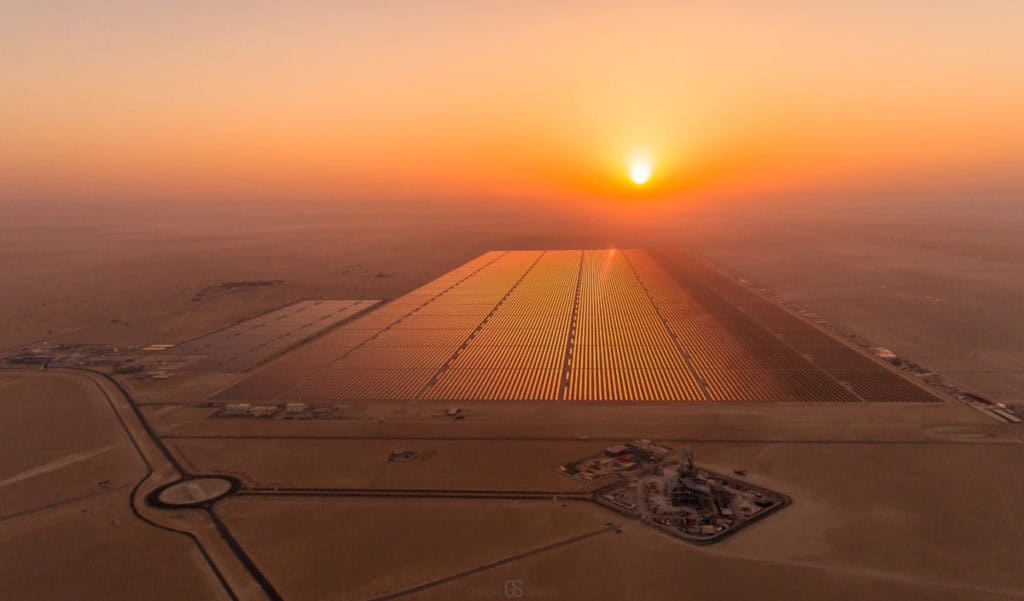
Saudi energy giant ACWA and the Dubai Water and Electricity Authority (DEWA) have reached financial close on the fourth phase of the 5 GW Mohammed bin Rashid Maktoum Solar Park.
Funds for the AED 15.78 billion ($4.2 billion) project will be provided by a consortium of unnamed international banks, including lenders from the UAE and China, ACWA said in a press release. “Financing the fourth phase of the solar park is the largest equity bridge loans in the region, in cooperation with a number of leading local and international banks,” it said.
ACWA is developing the project in cooperation with the Silk Road Fund, which is owned by the Chinese government and is part of its One Belt, One Road initiative.
The Noor Energy 1 section of the solar park consists of a planned 700 MW CSP installation that will include a 600 MW parabolic basin complex and a 100 MW solar tower, as well as 250 MW of PV. The project was originally planned to only feature CSP technology, but DEWA decided to expand it with a photovoltaic array in November, after ACWA had been awarded the contract to build it. The PV portion will sell power at $0.024/kWh, while for the CSP section, ACWA and DEWA have agreed upon a price of $0.073/kWh.
“Last year, in partnership with DEWA, we made a decision to expand the project’s production capacity from 700 MW to 950 MW through a hybrid concentrated solar and photovoltaic plant, to ensure maximum productivity,” ACWA said. “Our use of the hybrid model is an indication of our marked expertise in the market, focusing on the way we have reduced costs for both technologies and marking yet another innovation.”
In late February, DEWA launched a tender process for the construction of phase V of the 5 GW solar park. The project, which now has 413 MW of operational capacity, is also set to include a large-scale storage system and hydrogen facilities.
“We are on our way to reaching 5,000 MW by 2030 and achieving the objectives of the Dubai Clean Energy Strategy 2050 to produce 75% of Dubai’s total power output from clean energy,” said DEWA CEO, Al Tayer. “(It will) make Dubai the city with the lowest carbon footprint in the world by 2050.”
